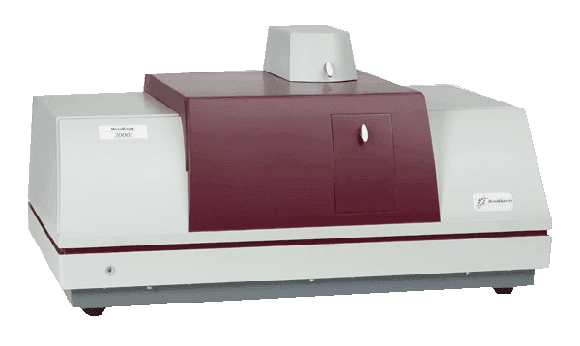
מונוכרום Shift+A
ניגודיות כהה Shift+S
ניגודיות בהירהShift+D
הגדל גופן Shift+F
הקטן גופן Shift+Z
הדגשת קישורים Shift+X
איפוסShift+C
הצהרת נגישות
© כל הזכויות שמורות 2018







הצהרת נגישות
© כל הזכויות שמורות 2018

Laser Diffraction and Mie Scattering Particle Sizer. Features For generations particle sizing was determined by sieving, sedimentation & electro- or optical zone counting. These classical techniques still have their place, but for speed, repeatability, simplicity of automated operation and broad size ranges, laser diffraction and scattering dominate in this area of particle characterization. Brookhaven’s new offering, the MicroBrook 2000LD, continues the domination.The MicroBrook 2000LD utilizes a unique single-beam, dual-lens system that receives all the scattered signals emitted from particles in the nanometer to millimeter size range. Employing the highest quality lenses results in high-resolution imaging of the diffracted and scattered light with low distortion, ensuring that the instrument will receive all signals – even weak signals at high angles from scattering of the smallest particles. The intelligent design of the Standard Operating Procedure (SOP) selections allows editing, storing, and recalling SOPs in order to automate routine measurements. A large number of different particle chemistries are pre-loaded including refractive indexes (for accurate Mie calculations of size distributions below a few microns) and particle densities. Other SOPs can be generated by the user. The intelligent design of the Standard Operating Procedure (SOP) selections allows editing, storing, and recalling SOPs in order to automate routine measurements. A large number of different particle chemistries are pre-loaded including refractive indexes (for accurate Mie calculations of size distributions below a few microns) and particle densities. Other SOPs can be generated by the user. The dry sample feeder and dispersion system automatically control the inflow, testing, and sample collection according to the SOP. The dry dispersion system uses a unique design for shearing, inertia, and collision to ensure the powder is fully dispersed while going through the measuring window.
Reproducibility from instrument-to-instrument is achieved using a standard reference material supplied with every instrument. It is also useful in validating that an instrument is working properly. Such procedures are automated and calibration is performed automatically.
Alignment of the incident laser beam is critical for accurate particle size distribution measurements. To ensure perfect alignment, the MicroBrook 2000LD uses an automatic focusing system that consists of: a precise stepping motor, automatic focusing system, precision guide rail, lead screw, connecting axle, and subdivision controller.
The internal circulation, dispersing, and alignment systems are all automatic in the MicroBrook 2000LD. The ultrasonic dispersion unit can operate with a dry sample tank, the liquid suction pump can operate even with an empty liquid reservoir, and a level sensor ensures no overflow of liquid. In addition, a stainless steel tank and valves including a corrosion resistant tubing add to the durability of the instrument. A specially designed photoelectric detector array that includes 90 detectors guarantees the scattered signal of each particle will be received. This ensures that a broad size range is measurable with the resolution expected from a high-end particle sizer like the MicroBrook 2000LD.
For More information About MicroBrook 2000LD